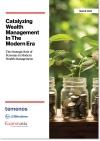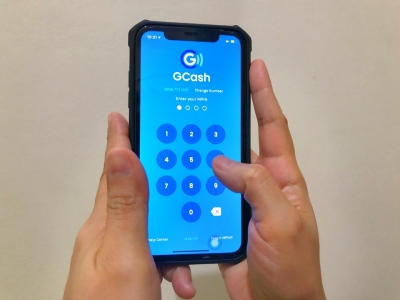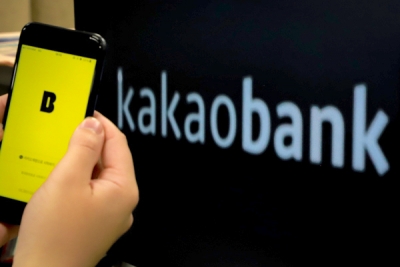Latest Insight
- South Korea charts middle path on crypto
- Should Grab and GoTo merge?
- Singapore pushes ahead with fintech-driven sustainability
- Digital banks in South Korea continue to thrive
- Billease is the rare profitable BNPL firm
- Fintech sector in Pakistan faces mounting challenges
- Where digital banks in Asia can make a difference
- Cashless payments jump in Vietnam
- Despite Binance ban, crypto demand is resilient in the Philippines
- Opportunities and challenges for China in green finance
Latest Reports
-
Innovate to Elevate
 In the dynamic and diverse financial landscape of the Asia-Pacific (APAC) region, banks are at a pivotal juncture, facing the twin imperatives of innovation and resilience to meet evolving consumer expectations and navigate digital disruption. Catalyzing Wealth Management In The Modern Era
In the dynamic and diverse financial landscape of the Asia-Pacific (APAC) region, banks are at a pivotal juncture, facing the twin imperatives of innovation and resilience to meet evolving consumer expectations and navigate digital disruption. Catalyzing Wealth Management In The Modern Era Hyper-personalized wealth management presents a paradigm shift from traditional models relying on static, generalized segments. Developing tailored investor personas based on psychographics, behaviours and fluid financial goals enables financial institutions to deliver rich and tailored customer experiences that resonate with next-generation priorities. Navigating the Future of Fintech in Asia
Hyper-personalized wealth management presents a paradigm shift from traditional models relying on static, generalized segments. Developing tailored investor personas based on psychographics, behaviours and fluid financial goals enables financial institutions to deliver rich and tailored customer experiences that resonate with next-generation priorities. Navigating the Future of Fintech in Asia Although fintech has been a global phenomenon, nowhere has the combination of finance and technology been as impactful as in Asia. This report examines some of the key fintech trends that have been re-shaping Asia’s financial industry thusfar as well as examine the trends that will shape the future.
Although fintech has been a global phenomenon, nowhere has the combination of finance and technology been as impactful as in Asia. This report examines some of the key fintech trends that have been re-shaping Asia’s financial industry thusfar as well as examine the trends that will shape the future.
Events
| April 23, 2024 - April 25, 2024 Money 2020 Asia 2024 |
| October 21, 2024 - October 24, 2024 Sibos Beijing |
| November 06, 2024 - November 08, 2024 Singapore Fintech Festival |
The clock is ticking for a Grab exit. Southeast Asia's most valuable startup has been in business now for almost nine years. It has been losing money that entire time. To be sure, Grab has seen its user base, valuation and revenue grow exponentially over that time. The company has evolved from an Uber lookalike into an aspiring super app betting on digibanking to deliver it from the red ink into the black. That could be easier said than done.
Fintech crackdowns in China tend to snowball. That was the lesson learned when Beijing began culling crypto and P2P lending firms. At first, it seemed those industry segments might survive if they could assuage regulators. It later became clear that the only way to satisfy regulators was to shut down or move into another line of business, as erstwhile P2P juggernaut Lufax did. China's fintech giants, once seemingly unassailable, now face their own day of reckoning with regulators. Ant Group and its counterparts are probably too big to fail. But they are not too big to be cut down to size.
Barely a month after Xinja's abrupt demise, another Australian neobank is exiting the market. This time though, the said bank is being bought out, not folding like an accordion. It would seem that National Australia Bank (NAB) made 86 400 an offer the neobank could not refuse to the tune of AU$220 million. Shareholders cannot complain. Australia's third-largest lender had already purchased an 18.3% stake during 86 400's Series B fundraising round and says it is paying a premium to the price investors had paid when they invested in the neobank.
While many countries have experienced a surge in cashless payments during the pandemic, for the Philippines fast-tracking the financial sector's digital transformation is a game changer. The reason is that the Philippines is a fast-growing, highly connected and populous country (108 million people) that lacks payments incumbents. There are no entrenched credit card companies in the market. That means ascendant e-wallets like Mynt's GCash have the chance to become dominant players in one of Southeast Asia's largest emerging markets.
Taiwan finally has an operational digital bank. Rakuten International Commercial Bank (RICB), backed by the Japanese e-commerce giant, recently became the first of three digibanks approved by Taiwan's Financial Supervisory Commission (FSC) to go live. RICB will initially offer deposits, fund transfer, small loan and debit card services and later expand into mortgages and corporate loans. Rakuten has had an internet bank in Japan (Rakuten Bank) for more than a decade.
Digital banking is a perilous pursuit. Just look at Xinja's sudden collapse or Monzo teetering on the brink. But that has not stopped cash-flush platform companies from trying to ride the digibanking wave to a blockbuster exit. So far, the results are mixed. One of the success stories is Korea's Kakao Bank, which borrowed a page out of WeChat's book and turned a ubiquitous messaging app into a money-making digibank. Kakao Bank is everything most digital banks are not: focused, profitable, and probably sustainable.
Platform companies counting on digibanking to lift their fortunes now routinely refer to themselves as "super apps" in the vein of China's WeChat. The two most prominent of them are Grab and Gojek, Southeast Asia's two most valuable startups. But being super and profitable are not one and the same. Under pressure from investors to reduce their cash burn and produce a viable exit strategy, both companies have sought a game-changing merger that could help them establish market dominance in digital banking. The M&A activity is accelerating pace as Grab and Gojek lose ground to Sea Group in Indonesia, Southeast Asia's largest economy.
Rumors of an impending Grab-Gojek merger are looking more like smoke and mirrors by the day. After all, combine two similar questionable business models and and what do you get? Here is what you do not get: a company capable of slowing Sea Group's momentum in Indonesia. With gaming and e-commerce in the same ecosystem, Sea has stickiness that Gojek and Grab lack. With that in mind, perhaps Gojek could merge with a company able to complement its core services of ride hailing, food delivery and payments. One possibility is Indonesian e-commerce giant Tokopedia.
In Vietnam's fiercely competitive e-wallet market, Momo stands out. The company has attracted deep-pocketed backers including private-equity firm Warburg Pincus and Silicon Valley fund Goodwater. Momo has is Vietnam's largest e-wallet by users, with 25 million, which it plans to double in two years. Momo recently completed a mammoth funding round that reportedly raised US$100 million that the company will use for strategic acquisitions and to enhance its app with biometrics technology.
China has a fast growing money-laundering problem. Beijing issued a record RMB 628 million (US$97 million) in fines for money laundering violations in 2020, up nearly 300% over a year earlier, according to a new report by PriceWaterHouseCoopers. Since payment firms accounted for 42% of all fines issued, it is no surprise that Chinese regulators are enhancing oversight of fintechs.
More...
Grab is going all in on digital banking. In the period of less than a month, Southeast Asia's most valuable unicorn has won a Singapore digital bank license and raised US$300 million in a funding round led by South Korea's Hanhwa Asset Management. That was the first external funding for its fintech arm. Other participating investors included long-time Grab backers GGV Capital and K3 Ventures as well as eBay founder Pierre Omidyar's Flourish Ventures.
Malaysia's digital banking race will be the one to watch now that Singapore's has finally ended. On January 1, Bank Negara Malaysia (BNM) formally invited applications for digital banking licenses. The deadline for submission will be June 30 and BNM will announce up to five winners by the first quarter of 2022. Compared to Singapore's, this should be more of a wide open race. Fewer tech giants will be in the running, although Grab will likely throw its hat into the ring.
The Philippines must act swiftly to implement tougher anti-money laundering (AML) legislation or it will likely be placed on the Financial Action Task Force's (FATF) gray list alongside failed states such as Syria, Yemen and Zimbabwe. Countries on the gray list, which is updated annually in February, are identified as having strategic deficiencies in their anti-money laundering /counterterrorism financing (CFT) regime that pose a risk to the global financial system. Enhanced compliance procedures required for transactions with financial institutions located in gray-list countries could make it harder for the Philippines' many migrant workers to remit money home and reduce the country's attractiveness to investors.
To delist or not to delist: That is the question. The New York Stock Exchange (NYSE) could not seem to make up its mind earlier this month, delisting three Chinese state-owned telecoms stocks (China Mobile, China Telecom and China Unicom Hong Kong), reversing course, and then finally deciding that the three firms should be delisted after all. The professed reason for kicking the companies off the NYSE is they have ties Chinese military and threaten America's national security. The impact on their market capitalization will likely be limited as their trading volume is much higher in Hong Kong than New York. More forced delistings of Chinese firms could occur in the waning days of the Trump administration though.
WhatsApp has something most other would-be super apps do not: the stickiness of an immensely popular messaging service. And unlike China's WeChat, WhatsApp is a global phenomenon, with large user bases in a diverse array of countries: India, Indonesia, Brazil, South Africa and the United States to name a few. Having eschewed advertising, WhatsApp hopes to monetize all those users with digibanking and e-commerce services. If WhatsApp becomes a global one-stop shop for communication, shopping and banking it will be the only app of its kind.















